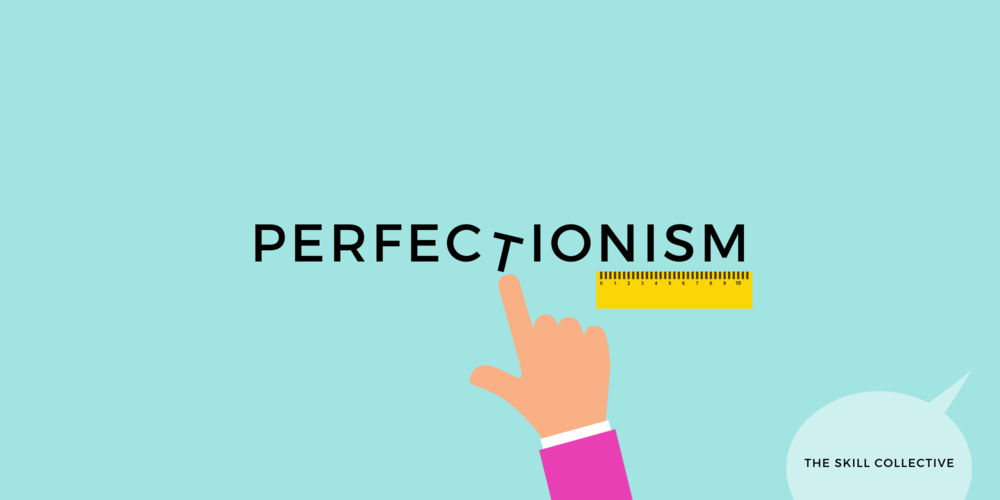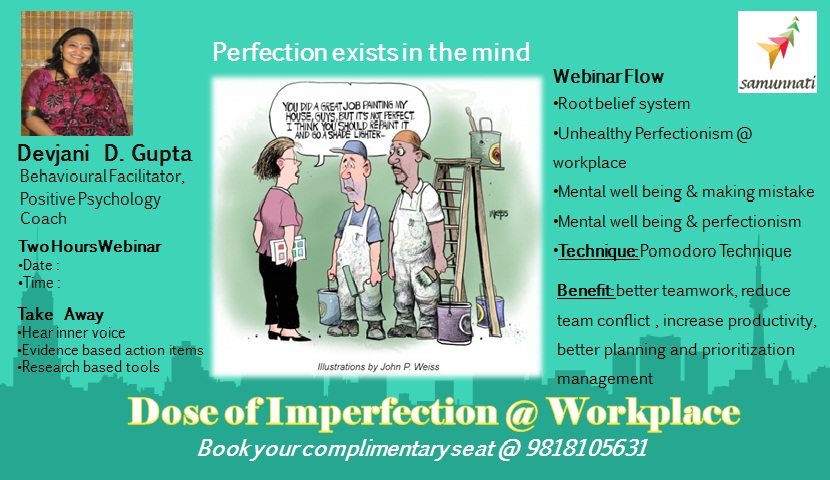 Perfectionism is a personality trait that some people do have, some people don’t have. It’s a complete a continuum in between the two extreme points. You can have a little bit of perfectionism in some areas, and in another you don’t.
Perfectionism is a personality trait that some people do have, some people don’t have. It’s a complete a continuum in between the two extreme points. You can have a little bit of perfectionism in some areas, and in another you don’t.
Usually we associate perfectionism with positive qualities. A person who is a perfectionist has high quality standards, they are not putting out junk, they can be trusted with other people’s projects, they’re going to do a good job. This is all good.
And when we say “I’m a perfectionist” we wear it like a badge of honor (I ore this champion medal for long time).
Perfectionism & Creativity.
Perfectionism can make creating really stressful. One of the reasons is, we want to keep those high standards, don’t want to make mistakes and fear failure more like others. So we tend to name some works of ours as “failures” even though they might have turned out quite all right, but it’s just not the same as we imagined, so we’re disappointed with ourselves.
Study of personalities of creative genius in Positive Psychology
Study 1: by Psychologist and creativity researcher Frank X. Barron
In this study few creative genius where shown certain pictures to understand their creative level and then measured on certain parameter.
All of them scored very high strong sense of self: ego, strength, all components of Positive Psychology, mental illness. Even metrics of non mental health & high IQ level was involved.
In his studies he found out that creative genius may be at once naïve and knowledgeable, being at home equally to primitive symbolism and to rigorous logic. He is both more primitive and more cultured, more destructive, more constructive, occasionally crazier and yet adamantly saner than the average person.
Study 2 : Creative researcher Mihaly Csikszentnihalyi
This is he had to say about his research: “If I had to express in one word what makes their personalities different from others, it’s complexity. They show tendencies of thought and action that in most people are segregated. They contain contradictory extremes: instead of being an individual, each of them is a multitude.”
So the crux of his research is that creative people with ‘messy minds’ but with positiveness. They have their your own goal.
One of the genius mind studied in this research was Picaso the famous painter.
Most commonly we will like to believe that he will have steady growth comparing to his genius capabilities. We think each sketch process goes incrementally high from one after another. This growth is shown in the picture 1.

Source : Positive Psychology program of Martin Seligman
But the actual is not picture 1. This growth is filled with trials, error, up and down as shown in Picture 2.

Source : Positive Psychology program of Martin Seligman
In fact the same goes with other creative genius Einstein, Edison, Shakespeare.
One of the major feature of these creative genius is ‘Openness to experience ‘ is a major factor in creativity. This ensures flexibility and has the caliber to accept erros, failures, faults right next to their perfection.
Experience of Art therapist Ms Rita Pailial in Shimla who works with Perfectionist
She is a coloring book creator, a creativity facilitator, and this what she said about Perfectionism:
“I find myself encountering and engaging perfectionists on pretty much a daily basis. The perfectionism I encounter in my students, my child, my friends, and the colorists who discover my books/workshops/events comes in all different levels.
Some of them
• struggle over what color to choose and uttering “I just don’t want to mess it up with the wrong choice!”.
• Or often saying: “I’m the only one who isn’t getting it!”).
Over this past year of engagement with fellow perfectionists, I have begun noticing trends in their thinking pattern, problem solving, self acceptance level, tackling new situations, and specially if the situation does not go according to their definition of “perfectly.”
Contribution of Dr. Jessica Rohlfing Pryor: core faculty member at Northwestern University’s Counseling Program from The Family Institute.
Perfectionism becomes unhealthy—called maladaptive perfectionism—when there’s an unrealistic attempt at reaching excessively high or impossible goals.
An example of situation shared by her as a maladaptive perfectionism: “Feeling a pressure to be the best at everything. For example, being the number-one student athlete and the valedictorian and getting into the ‘best’ university,” said Pryor. “One person’s ability and energy to obtain, let alone remain at, that level of excellence over a long period of time—that’s impossible to do.”
In a 2017 study, researchers examined perfectionism among college students are high globally over the past three decades and found that three types of perfectionism have increased among recent generations of students.
1. Self-oriented perfectionism: Individuals attach irrational importance to being perfect, hold unrealistic expectations of themselves, and useless self-evaluations.
Associated with: negative physiological reactions to life stress and failure, clinical depression, anorexia nervosa, and suicidal ideation.
2. Socially prescribed perfectionism: Individuals believe their social context is excessively demanding, that others judge them harshly, and that they must display perfection to secure approval.
Associated with: anxiety, depressive symptoms, and suicidal ideation to greater degrees than those with self-oriented perfectionism.
3. Other-oriented perfectionism: Individuals impose unrealistic standards on those around them and evaluate others critically.
Associated with: higher vindictiveness, hostility, and the tendency to blame others, in addition to lower altruism, compliance, and trust.
We are going to organize a workshop on perfectionism ‘Dose of Imperfect @ workplace’. Join us to know the
Webinar Flow
• Root belief system
• Unhealthy Perfectionism @ workplace
• Perfectionism & Making mistake
• Mental well being
• Technique: Pomodoro Technique
Benefit:
• Better teamwork, reduce team conflict , increase productivity, better planning and prioritization management & overall well being
Take Away
• Hear inner voice
• Evidence based action items
• Research based tools
